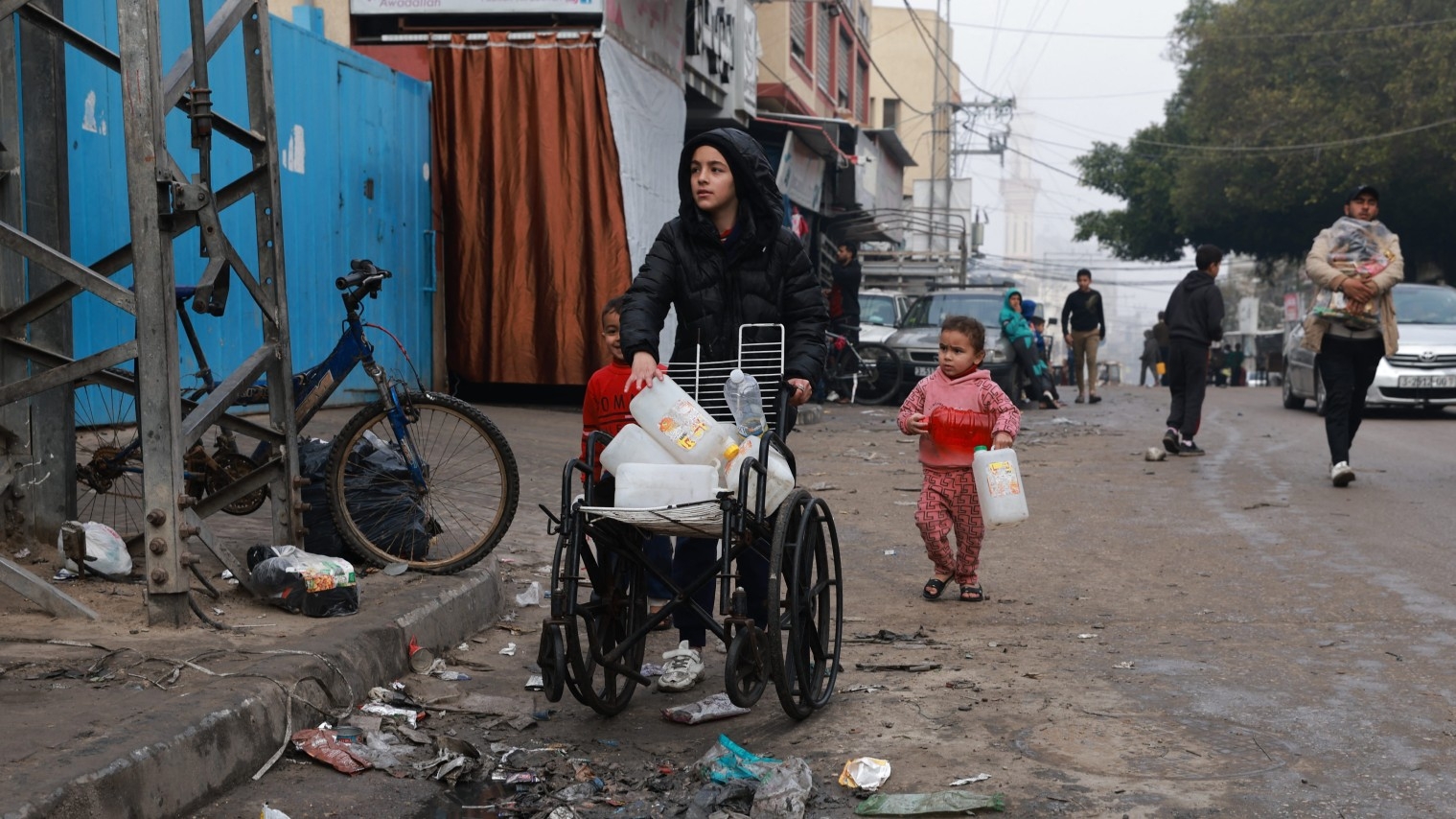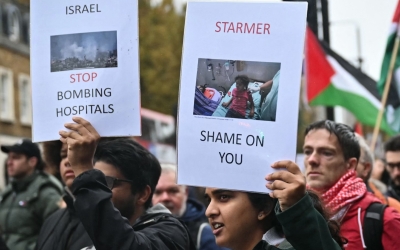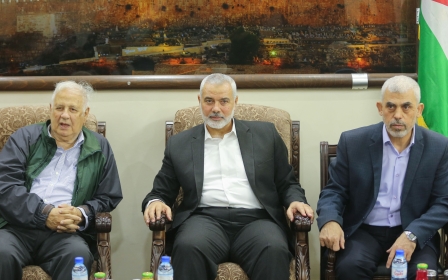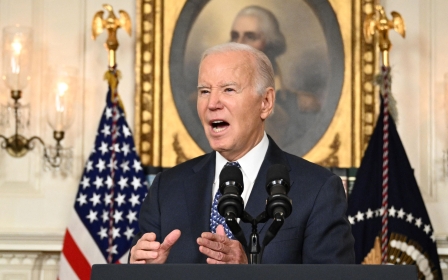War on Gaza: Netanyahu rejects UN pleas and says Israeli forces will enter Rafah

Israeli Prime Minister Benjamin Netanyahu's office said on Friday that the country's military would expand its Gaza offensive into Rafah, despite the United Nations warning it would be catastrophic for the more than one million Palestinians who have sought shelter there.
Netanyahu's office said in a post on X, formerly known as Twitter, that Israel could not achieve its goal of eliminating Hamas "by leaving four Hamas battalions in Rafah", and that the premier had told the military to draw up "a combined plan for evacuating the population and destroying the battalions".
Since Israel's military expanded its assault into southern Palestinian cities such as Khan Younis, more than half of Gaza's population, some 1.4 million Palestinians - have fled to Rafah, according to the main United Nations agency that aids Palestinian refugees in Gaza, known as Unrwa.
Philippe Lazzarini, the head of Unrwa, told reporters on Friday that there was "growing anxiety and growing panic" in the city, with Palestinians having "absolutely no idea where to go after Rafah".
"Any large-scale military operation among this population can only lead to an additional layer of endless tragedy that’s unfolding," Lazzarini said.
The US, the main military and financial backer of Israel and its war on Gaza, has cautioned Israel against launching a large-scale offensive into Rafah, a previously declared "safe zone".
US National Security Council spokesman John Kirby told reporters on Thursday that the White House "would not support" such an operation.
Expanded air and ground operations into Rafah will unleash a humanitarian nightmare in Gaza surpassing even the horror of the past four months
- Mercy Corps
"Any major military operation in Rafah at this time, under these circumstances, with more than a million - probably more like a million and a half Palestinians who are seeking refuge [there] - without due consideration for their safety would be a disaster," Kirby said.
His comments came as US President Joe Biden issued his bluntest criticism of Israel's actions in Gaza since the start of the war, describing its offensive in the enclave as "over the top".
"There are a lot of innocent people who are starving, a lot of innocent people who are in trouble and dying, and it’s got to stop," Biden told reporters at the White House.
'Humanitarian nightmare'
US Secretary of State Antony Blinken, who is on his fifth trip to the Middle East since the 7 October attacks on southern Israel, urged Israel on Wednesday to do more to protect civilian lives.
"Israel has the responsibility, has the obligation, to do everything possible to ensure that civilians are protected and that they get the assistance they need in the course of this conflict," Blinken said during his visit to Israel.
He made stops this week in Saudi Arabia, Qatar and Egypt to support negotiations for a cease-fire that could free the remaining hostages held in Gaza and allow for more humanitarian aid to reach Palestinians.
Netanyahu insisted earlier this week that Israeli forces going to Rafah would be "providing the civilian population safe passage to safe zones".
However, given the scale of devastation elsewhere in Gaza, and the huge numbers of people trapped in the enclave, aid organisations say that such pledges will be nigh-on impossible to fulfil.
"Expanded air and ground operations into Rafah will unleash a humanitarian nightmare in Gaza surpassing even the horror of the past four months," the aid organisation Mercy Corps said in a statement on Friday.
"If people are forced to flee north from Rafah, they can only return to devastated areas that are littered with dangerous explosive devices and are virtually uninhabitable – no services, no supplies, no sufficient aid response, and very little remaining infrastructure to sustain life. The journey – as it was when many fled south – will likely be incredibly dangerous.
"What we need now is a sustained ceasefire, end to the siege and access for the massive scale-up of aid – not a new onslaught in a town of a million people."
Israel launched its offensive on Gaza after Palestinian fighters launched a multi-pronged assault on southern Israel which killed around 1,140 people and saw over 200 taken as captives back to Gaza.
According to Mohammed Deif, the leader of Hamas's military wing, the operation was launched in response to an increase in settler attacks in the occupied West Bank and repeated incursions at Al-Aqsa Mosque, the third holiest site in Islam.
Since the 7 October attacks, Israel's assault on Gaza has killed more than 27,500 people and displaced around 1.7 million people multiple times.
Nearly 70 percent of Gaza's 439,000 homes and about half of its buildings have been damaged or destroyed by Israeli air strikes and shelling.
Middle East Eye propose une couverture et une analyse indépendantes et incomparables du Moyen-Orient, de l’Afrique du Nord et d’autres régions du monde. Pour en savoir plus sur la reprise de ce contenu et les frais qui s’appliquent, veuillez remplir ce formulaire [en anglais]. Pour en savoir plus sur MEE, cliquez ici [en anglais].





